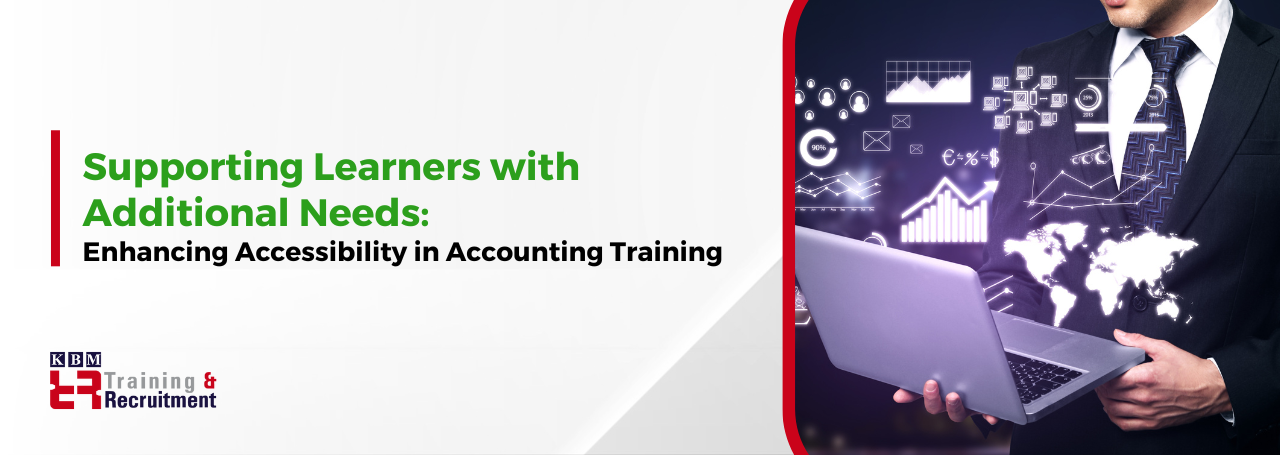Every learner deserves a fair chance to grow and succeed. Accounting training should welcome everyone, including those with additional needs. Training providers must build courses that include and support all learners. Inclusive education strengthens the workforce and helps people achieve their goals.
Accounting may seem complex for those who face learning barriers. However, strong support can make the learning process smooth and enjoyable. Providers who understand these needs create better learning journeys.
Different learning needs
Learners bring different strengths and face different challenges. Some may find it hard to focus in busy classrooms. Others might deal with dyslexia, ADHD, anxiety, or long-term health issues. Some learners may also care for family members or face financial pressure.
Trainers must take time to get to know each learner. Understanding individual needs allows providers to create personalised support plans.
Flexible learning
Learners succeed when they follow study plans that suit their needs. Some learners prefer online learning. Others enjoy in-person classes with face-to-face support. Flexible timetables also make learning more manageable for those with health needs or caring duties.
Training providers who offer flexible options give learners better control over their studies. This builds confidence and reduces stress.
Helpful tools
Learners achieve more when they use the right tools. Screen readers, large-print materials, and coloured overlays help learners with visual difficulties. Mind-mapping software supports those who struggle to organise their ideas. Speech-to-text tools help learners who find writing challenging.
Providers must speak with learners about what tools work best for them. They should invest in assistive technology and offer training on how to use it effectively.
One-to-one support
Trainers make a big impact through one-to-one support. They can explain tricky ideas in simple ways. Learners often feel more relaxed in a one-to-one setting and ask more questions.
Support staff also play a key role. They keep learners motivated and help them solve everyday study problems. Learners who build strong relationships with support staff tend to stay on track and reach their goals.
Fair assessments
Training providers must design fair assessments. Some learners need extra time during tests. Others might complete a project or deliver a presentation instead of sitting a written exam.
Awarding bodies allow these changes when providers follow the correct process. Trainers must stay aware of these options and guide learners through them. Fair assessments allow learners to show what they know without feeling limited.
Skilled trainers
Good training starts with skilled and caring tutors. Trainers must learn how to support learners with different needs. They must recognise when someone struggles and act quickly to help.
Providers should train all tutors in inclusive teaching and assistive technology. When tutors know how to help, learners feel supported and ready to learn.
Positive learning environment
Learners stay engaged when they feel safe and welcome. Providers must create spaces where learners feel respected and understood. This includes showing kindness, avoiding judgment, and listening to each learner's voice.
Support staff need to provide assistance outside of the classroom. Providers can facilitate learners accessing counselling, wellbeing support, and local charities. Learners accessing this type of support tend to progress better and appreciate their training.
Continued support
Support should continue after the course ends. Providers can help learners write CVs, practise interviews, and apply for jobs. Some learners may also need coaching to build workplace confidence.
Hands-on experience can help learners transition into work. Providers who offer real-world training give learners a strong head start in accounting careers.
Conclusion
Training providers shape future professionals. When they support learners with additional needs, they build stronger individuals and a better profession. Learners achieve more when trainers offer flexible options, use the right tools, and treat everyone with care.
Providers who make accounting training inclusive change lives. They help learners move from challenges to achievements—step by step.






















